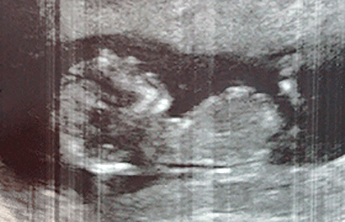
Eva Clinics put at your disposal not only the best experts, but also the most complete and innovative treatments such as PREIMPLANTATION GENETIC DIAGNOSIS (PGD). This technique consists in doing a genetic study on embryos prior to be transferred into the uterus preventing the foetus from suffering avoidable genetic diseases.
WHAT IS GENETIC PREIMPLANTATION DIAGNOSIS?
Preimplantation Genetic Diagnosis is a new diagnostic method based on assisted reproduction techniques which informs you about each embryo prior to their implantation into the uterus, identifying possible genetic diseases and congenital malformations which may affect the foetus after pregnancy is started.
This diagnosis allows only healthy embryos to be transferred into the uterus. Thanks to this process future diseases like Down syndrome and cancer can be avoided. Preimplantation Genetic Diagnosis technique is the result of the combination of In Vitro Fertilisation or ICSI and genetic analysis. Preimplantation Genetic Diagnosis ensures you that your future baby will be healthy.
PGD is performed the third day of embryo development and when approximately it has eight identical or blastomere cells containing the necessary genetic information in order to give the diagnosis.
FOR WHOM GENETIC PREIMPLANTATION DIAGNOSIS IS INDICATED?
Preimplantation Genetic Diagnosis is indicated for:
- Couples in which the man suffers from meiotic seminal alteration.
- Couples with the risk of transmitting chromosomal disorders.
- Couples with a medical history of recurrent miscarriages.
- Couples with a medical history about repeated IVF failure (different failed attempts).
WHAT ARE THE ADVANTAGES OF GENETIC PREIMPLANTATION DIAGNOSIS?
- One of the main Preimplantation Genetic Diagnosis advantage is that it is performed prior to the embryo transfer into the uterus and avoids the risk of miscarriage, it is different from other methods.
- In vitroFertilisation cycles with a Preimplantation Genetic Diagnosis included have better success rates than those cycles that don’t use it. The chance of embryo survival and the pregnancy rate are increased.
- With Preimplantation Genetic Diagnosis it is possible to discover the embryo sex which is useful to avoid the transmission of congenital diseases where it affects a specific gender, for example: haemophilia, cystic fibrosis, muscular dystrophy and Huntington’s disease.
HOW PREIMPLANTATION GENETIC DIAGNOSIS IS PERFORMED?
- In VitroFertilisation is performed to obtain embryos.
- Embryo’s biopsy. It consists in extracting a cell from the embryo without modifying its normal development. Once biopsy is carried out, embryo will be kept in the laboratory until its implantation into the uterus.
- Genetic analysis. The cell obtained by biopsy will be subjected to a genetic study.
- Embryo transfer. The result of the genetic analysis is transferred on a detailed report to EVA medical team and then is decided which embryos will be transferred considering chromosome resources and morphological characteristics of embryo viability.






